
🌳🌳🌳 🤖⚡️🌳🌳🌳
Welcome to BANJOS 🪕 very first blogpost! BANJOS plans to create an isometric, sci-fi, one vs. many multiplayer game. This week, our team worked on the story, prototype, game mechanics, visual development, and sound design.
Updated Logline
Set deep in the forest, lies the core, which connects the clone’s consciousness. All the clones are stuck doing meaningless tasks: repairing connections by soldering, collecting parts, and cleaning the area. A bug allows a few clones to gain their consciousness, becoming “variants”, who want a way out of doing repetitive tasks. The variants strive to reach the core to learn more about their purpose. Meanwhile, the overseer of all the clones, “creator” tries to protect the core and deactivate the variants by sending clones after them. Once the variants reach the core, a variant becomes the new creator, wiping everyone’s memories, and the game resets.
Story Revision
Based on our feedback from our concept presentation, BANJOS finalized some key elements to the story, specifically focusing on the purpose of the characters.
- Why are there clones in the forest?
- Their purpose has been long forgotten, so they are just doing meaningless mundane tasks
- As a survival instinct, the clones work to maintain the core, by repairing some connections through soldering and cleaning some areas up
- Why do clones become variants?
- A small bug in their system arises, and they soon gain some consciousness and realize that they are just repeating the same task over and over
- Why do the variants want to reach the core?
- They know that all the clones consciousness are connected to the core
- They want to free all the other clones, hence they gravitate towards the core
- Unbeknownst to them, once they reach the core; the entire cycle restarts
Programming
Our coders set up a prototype in unity. This includes local multiplayer, isometric 3D view, and movable characters. In addition, we started implementing basic interactions such as: fighting, soldering points to light up LEDs, and picking up objects.
Game Design
Many new game mechanics have been revised. This includes the level design and player game mechanics.
Level Design
The game is split into two phases. Phase 1 is where the variants can pick up skills while the creator plant traps on the main map. For new players, this acts as a tutorial to teach them how to solder and the different electrical components. For returning players, it allows them to customize their skill set. In Phase 2 there is the main map where the variants try to reach the core, while the creator tries to fight back and deactivate the variants.
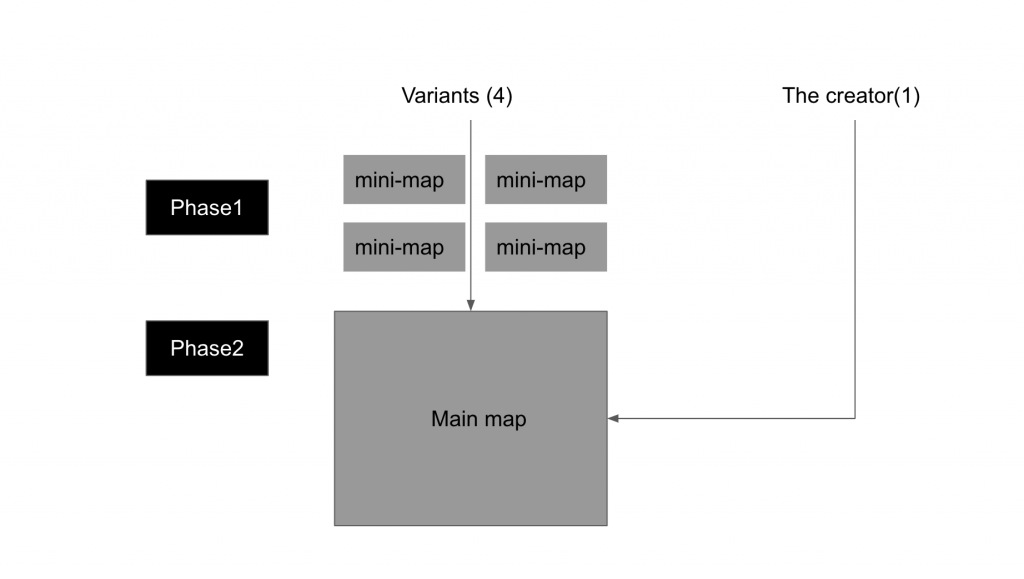
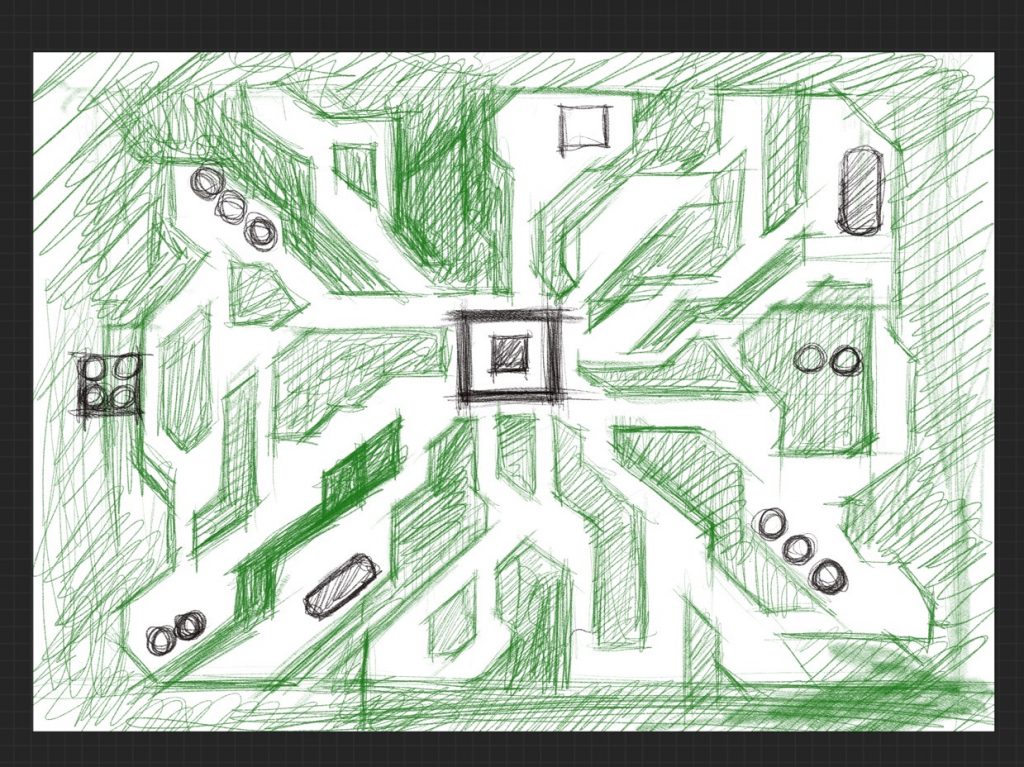
Player Mechanics
One of the biggest changes we made, was having the game mechanics based on circuit boards. The forest is like one big circuit board, all connected/leading to the core. The characters are soldering iron robots that can solder connections together, remove connections, and use their soldering irons as a weapon against other clones. There are electrical components across the map that regulate the flow/current of the energy, such as resistors and diodes. Variants must light up several LEDs scattered across the map by soldering connections, which will allow them to open up a gate to the core.
Visual Development
We started to work on the visual development of the game, including prop, environment, and character design.
Props
Designed some different components of the game: resistors, diodes, LED.

Environment
Drew isometric and bird’s eye view concept art. The creator has a bird’s eye view of the entire map that looks like a circuit board. At the center is the core. The red diamonds are the variants while the white circles are clones. The variants have an isometric view.
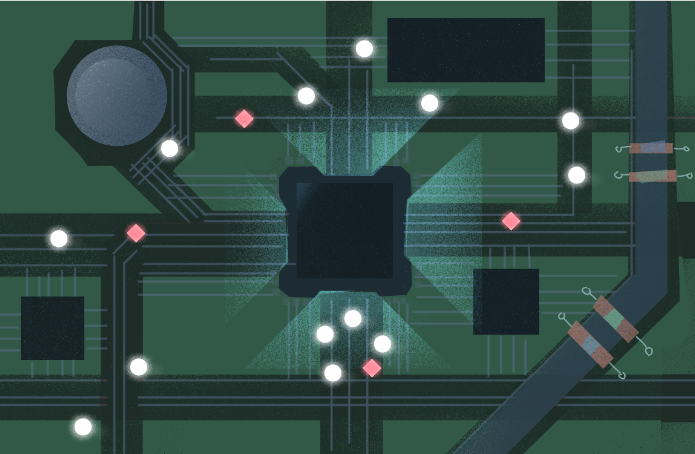
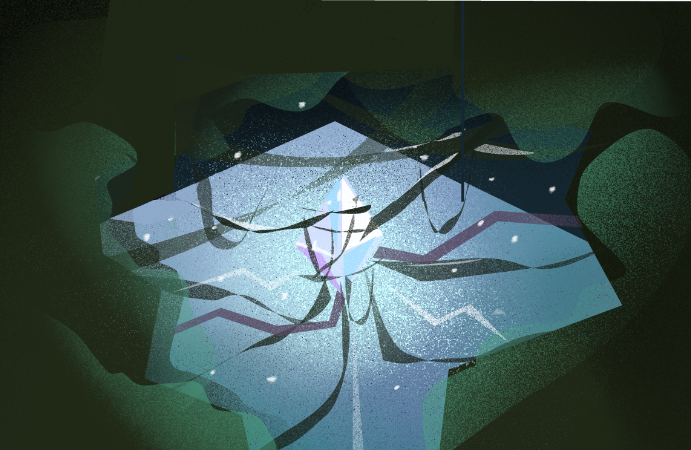
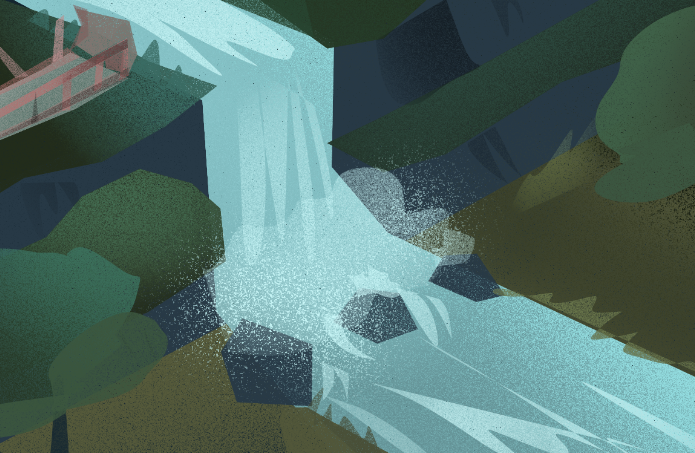
Character
A robot that carries a soldering iron and some wick wound up on the side of the power box. The variants and clones will have different color schemes.

The initial design was too rounded, so a more updated version has the robots shaped like crystals/geometric forms. As of now, the limbs are all floating and there are no visible joints; this may change later on.
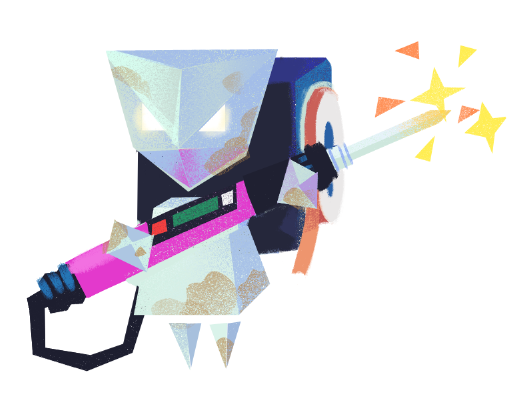
Sound
Our sound design has sci-fi ambiance elements, inspired by soundtracks from Destiny 2 and Horizon Zero Dawn. We have loops for battle music (electronic-driven, faster, distorted) and calm music (more acoustic elements, slower, ambient).
Next Steps
Our next steps will be implementing more game mechanics to the prototype. Meanwhile, the visual development and map design will be finalized, which will give a clearer vision for the sound design. Afterward, the artists will move towards 3D modeling props and animating characters.